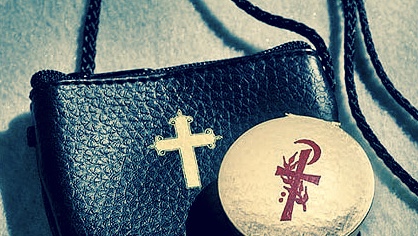Twelfth Sunday in Ordinary Time A
A little girl was attending a wedding for the first
time. When the organ blared and
everybody stood up, she looked down the aisle toward the church doors and saw the
bride in her beautiful gown.
With a big smile she turned to her mother and asked, “Mommy, why is the
bride dressed all in white?”
Not wanting to give a full explanation, her mother replied, “Because
white is the color of happiness, and this is the happiest day of her
life.” The little girl then looked
in the opposite direction and saw the groom standing tall in his tuxedo. Which is when, with as serious face,
she asked her mother, “Then why, Mommy, is the groom dressed all in black?”
“Nothing is concealed that will not be revealed, nor secret
that will not be made known.”
Those are some of the first words of Jesus’ message to us in this
Sunday’s gospel. In the original
language, they would have called to mind some of the traditional attire worn at
a wedding. When Jesus speaks of
things being “revealed” and “made known,” he’s using the same vocabulary that
was used to describe a groom lifting the wedding veil to reveal the beauty of
his bride. In Greek, the word is apokalyptein, from which we get our
English word, apocalypse. Now, jokes
like the one I just told depend on the notion that many men view their
wedding day as if it were the “end of the world”—a catastrophic finale to their
days of fun. But I have no doubt
Jesus is hoping that we’ll look to the end of days much more like a joyful
bride, in happy anticipation of sharing a life with the one you love.
Listen again—and carefully—to those words of Jesus: “Nothing
is concealed that will not be revealed, nor secret that will not be made known.” Jesus doesn’t say that some things will be exposed, or even
that most things will be laid bare. In the end, nothing at all will remain secret, everything will be brought out in the open. Everything! (And an already quiet church just got perfectly
silent.) That’s quite a sobering
thought, isn’t it? Little wonder
that in this brief passage Jesus tells us three times to not be afraid!
Shouldn’t the thought of meeting God and spending eternity
with him have us rejoicing? So why
does this thought have us quaking in our boots? Because we’ve tried to hide some things. Because we’ve kept secrets. Because our outside and our inside
don’t exactly match right up as they should.
For some of us, we’ve got it all together on the
outside. We get to church most
every Sunday and have received the sacraments. We’ve got a crucifix on the wall and a rosary on the
rearview mirror. To all outward
appearances, we’re pretty good Catholics.
The secret is, however, that we’re not who we appear to be. Have I cultivated a personal and
intimate relationship with Christ?
Is he truly the center of my life, or just another part of it? Have I given him full control? Does he get the final say? Or do I hold back—for fear of what he
might ask me to do, or fear of what he might ask me not to do? Jesus will ask nothing of us that is
not for our good. He who has his
eye on the tiny sparrow will not neglect to care for us in our need—in fact, to
secure for us the fullness of life.
He even has counted the hairs on our head! (Admittedly, that’s a greater accomplishment in some case
than in others.) Do not be
afraid to take your faith to heart!
You can keep no secrets from the Lord.
For some others, we’ve got it all together on the
inside. Our prayer is frequent,
sincere, and intense. We don’t really
take issue with anything the Church teaches. As far as the Catholic faith goes, we’re all in. But we keep it all to ourselves. It’s our secret. Religion is really a private matter,
isn’t it? You don’t want to stand
out from the crowd, do you? What
would the neighbors think? But
Jesus is clear: if we truly believe all that he has whispered to us, then we
must be ready to proclaim it from the housetops. Those who have acknowledged Christ before the world are the
ones Christ will acknowledge before his Father. Do not be afraid to share your faith with others! You must not keep the Lord a secret.
“Nothing is concealed that will not be revealed, nor secret
that will not be made known.” That’s
only a frightening thought if we have something to hide—from the eyes of God or
the eyes of our neighbors. Live
your life in such a way that you can look ahead to its end, not with dread but
with happiness. You are a member of the Church: the bride of
Christ. When her great beauty is ultimately unveiled, be sure you’re wearing the appropriate color. Do not be afraid! Dress all in white.











